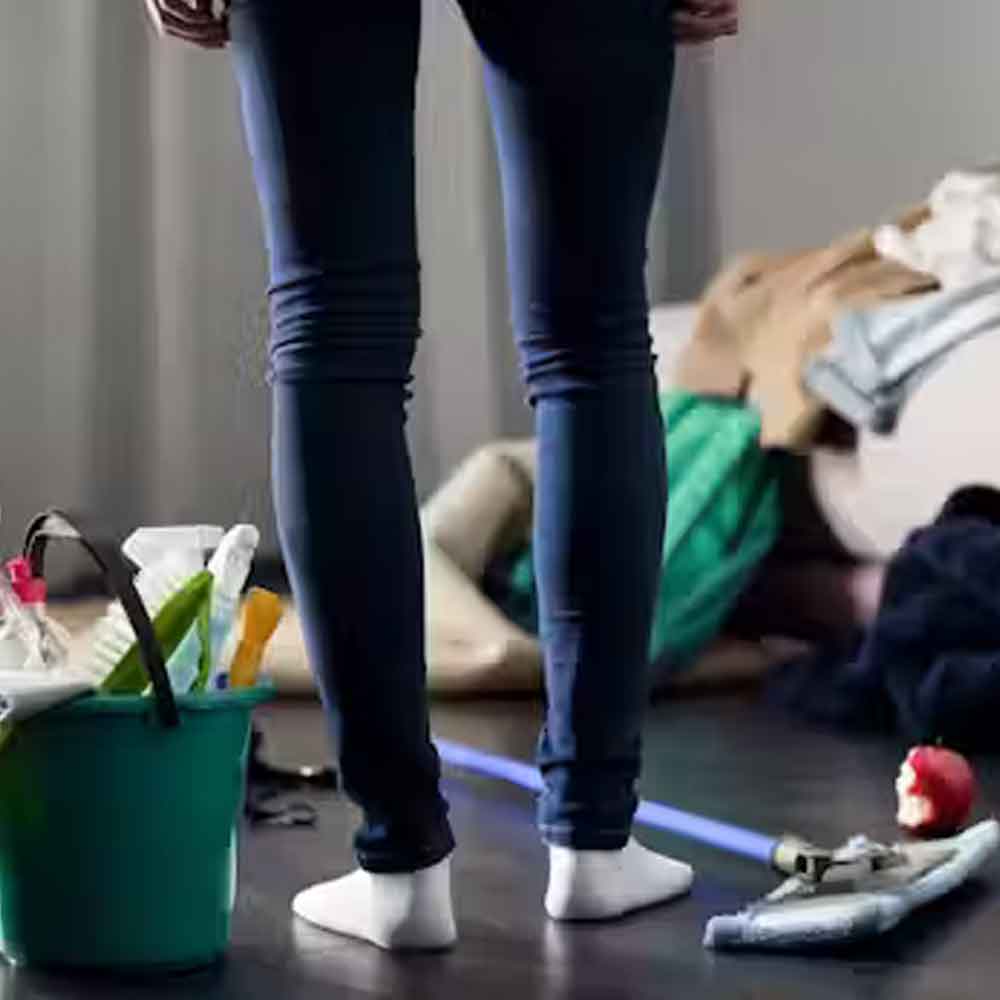According to studies, women experience higher cortisol surges than men do when there is clutter at home. Women may be more affected by clutter because they bear a disproportionate share of the mental burden. According to a UCLA study, women who lived in cluttered houses had much higher levels of the hormone cortisol, which is associated with long-term stress. They felt more overwhelmed and their stress levels remained high throughout the day. According to researchers, this might be because of societal norms surrounding domestic duty, which teach women to be aware of, control, or feel guilty about a mess in the home, even when they are not responsible for fixing it.

According to a 2012 study conducted at UCLA's Centre on Everyday Lives and Families (CELF), women who manage more belongings had higher levels of the stress hormone cortisol. Mothers told researchers during video tours of their homes, that cluttered areas were ‘not fun’ and ‘very chaotic.’ Fathers were said to be psychologically unaffected by the disarray and frequently made no mention of it at all during separate home tours through the same messy space.
Researchers concluded that women in the survey thought a successful and happy family was related to a clean home. Artefacts around the house were more frequently seen by men as a source of pride or enjoyment, rather than as a source of stress. Women felt more worried when there was greater clutter in their homes.

Cognitive overload brought on by thinking through the process of traversing clutter can lead to a stressful state that produce irritation, feelings of beingoverwhelmed, and lead to shutdown. Women find it difficult to live their lives as they would like to when this occurs. They either go into overdrive and put everything away or shut down entirely, unable to take any action. Not only is that laundry heap on the chair bothersome, but it may be increasing your cortisol levels.
Cleaning is only one aspect. Another is mental strain. According to this study, women who live in disorganised and disorderly households are more likely to feel stressed and depressed. These findings are further supported by biological data, as these women also showed elevated levels of the stress hormone cortisol. The interesting finding, though, is that women reported fewer bouts of depression throughout the day when they lived in tidy and ordered households. Surprisingly, men's mental health did not appear to be significantly impacted by these findings.

Furthermore, it's critical to understand that keeping a tidy and orderly living area is essential for promoting mental health and goes beyond aesthetics. A clean home can provide a strong barrier against stress and anxiety, improve focus, and give its occupants a strong sense of mastery and achievement. As a result, maintaining a clean-living environment can be an effective strategy for protecting your mental health.
Delegate Responsibilities
Start assigning modest jobs to those around you. Loved ones will probably be more receptive to owning less items in that area in order to reduce labour time after they understand how long a certain chore takes, such as clearing up toys or doing dishes.

Set An Example By Decluttering Your Own Stuff
Keep in mind that the one who must deal with the clutter is the one who experiences the most stress from it. Give your loved ones some clutter-navigating time so they can start to sense that something needs to happen. Focusing on your personal belongings will help you start the decluttering process. We frequently view our partners' clutter as the issue. Furthermore, even though it can be problematic, it's likely that your personal belongings are an issue as well. Reduce your kitchenware, clothing, sentimental objects, and even toiletries.
Clearer areas will appear throughout the house as you purge your personal belongings. Your mood will improve, you'll start to feel lighter, and you'll have more free time. Your loved ones will start to recognise the advantages of living with less as they observe you as an example.
Let Your Loved Ones Know How Clutter Affects You
Introduce the topic of clutter and how it affects you. But watch what you say and when you say it. Talking about clutter is best avoided when it's causing you a lot of worry. Instead, pick a moment when you're at ease and your loved ones are completely focused on you.
Image source: Storables, Filling the jars